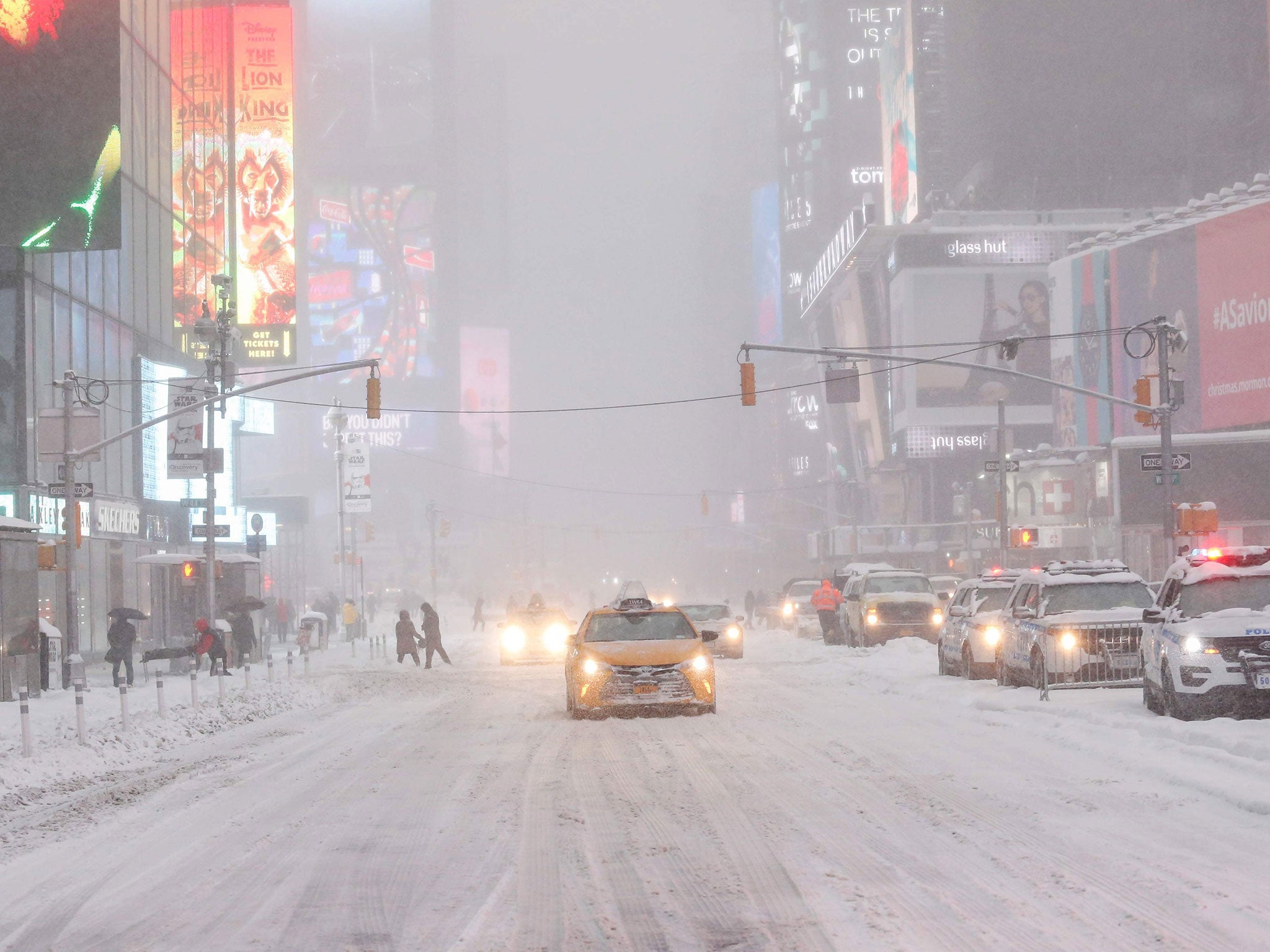Storm Jonas: New York imposes travel ban amid one of the worst blizzards in its history
Governor Andrew Cuomo introduces road traffic ban from 2.30 local time in parts of the city, with 30 inches of snow expected to fall

New York has imposed a ban on road travel amid a blizzard expected to be “one of the worst in the City’s history”.
Official estimates expect up to 30 inches of snow to fall in parts of New York, which has already seen significant downfalls in the extreme weather battering the east coast of the US.
The city is also on alert for coastal flooding due to high tides, with resources being "prioritised" for the Long Island and New York City areas.
Governor Andrew Cuomo announced the road travel ban which took effect from 2.30 local time, with trains due to stop running at 4pm on Metro North and LIRR lines. Only authorised emergency vehicles will be permitted on closed roads.
He said earlier that plows were no longer able to keep up witht the rate of snowfall, and warned that trains were being left stranded by iced over rails.
He tweeted: "Public safety is job 1. Road travel ban will commence as of 2.30pm in the downstate area, in an orderly way so people can get home."
It followed Mayor Bill De Blasio telling a press conference the city was “seriously considering” a full ban on travel, and warning residents to “go home now” and “stay home”.
If more than 20 inches of snow fall, the storm will be among the top five most severe in the City’s history, since records began in the 1800s. It is already blanketed in snow, which began falling on Friday night, with 16 inches already recorded.
Severe snowstorms are affecting more than 20 American states, with emergencies declared in 10 and at least nine deaths.
"We are seriously considering a full travel ban," de Blasio told a press conference.
"If you have taken your car out for any reason, turn around and go home now. It's as simple as that. Because this is bad and it's going to get worse."
His office later Tweeted: “This will very likely be one of the worst storms in City history. Go home. Stay home. Stay safe today.”
Snow is currently falling faster than expected, at between one and three inches per hour, with officials preparing for a worst case scenario of 30 inches of snow.
Huge sections of the mid-Atlantic states have been covered in snow, with more northern states such as New York, New Jersey and Connecticut expecting much more in the coming hours.
New Jersey governor Chris Christie told a news conference that 90,000 people are without power across the state, which has seen widespread tidal flooding as well as snow.
Muriel Bowser, the mayor of Washington DC, also warned residents to stay at home. Between 24 and 30 inches of snow are expected in the capital.
There have been 12 deaths linked to the storn, which include a four year old boy in North Carolina, and have largely been caused by traffic accidents attributed to the icy roads.
Join our commenting forum
Join thought-provoking conversations, follow other Independent readers and see their replies
Comments
Bookmark popover
Removed from bookmarks